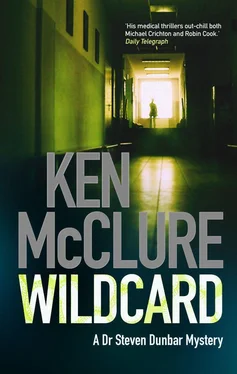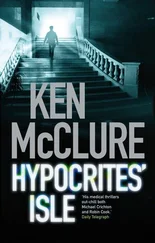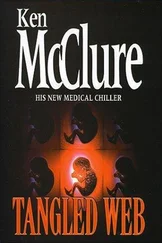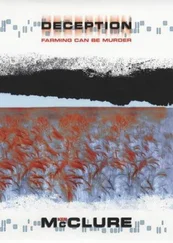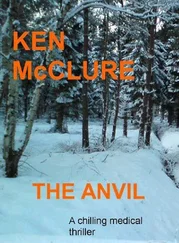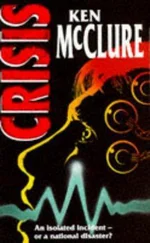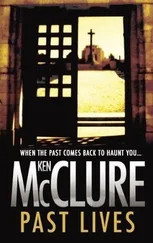Ken McClure - Wildcard
Здесь есть возможность читать онлайн «Ken McClure - Wildcard» весь текст электронной книги совершенно бесплатно (целиком полную версию без сокращений). В некоторых случаях можно слушать аудио, скачать через торрент в формате fb2 и присутствует краткое содержание. Жанр: Триллер, на английском языке. Описание произведения, (предисловие) а так же отзывы посетителей доступны на портале библиотеки ЛибКат.
- Название:Wildcard
- Автор:
- Жанр:
- Год:неизвестен
- ISBN:нет данных
- Рейтинг книги:4 / 5. Голосов: 1
-
Избранное:Добавить в избранное
- Отзывы:
-
Ваша оценка:
- 80
- 1
- 2
- 3
- 4
- 5
Wildcard: краткое содержание, описание и аннотация
Предлагаем к чтению аннотацию, описание, краткое содержание или предисловие (зависит от того, что написал сам автор книги «Wildcard»). Если вы не нашли необходимую информацию о книге — напишите в комментариях, мы постараемся отыскать её.
Wildcard — читать онлайн бесплатно полную книгу (весь текст) целиком
Ниже представлен текст книги, разбитый по страницам. Система сохранения места последней прочитанной страницы, позволяет с удобством читать онлайн бесплатно книгу «Wildcard», без необходимости каждый раз заново искать на чём Вы остановились. Поставьте закладку, и сможете в любой момент перейти на страницу, на которой закончили чтение.
Интервал:
Закладка:
‘No, that’s an entirely false impression,’ replied Phelps. ‘And I can’t stress that enough. The Heathrow incident was contained with apparent ease because of the expertise of the people involved. The African outbreak you’re thinking of was made to appear worse than it actually was by the poor practice in the local hospitals and a lack of knowledge among the staff about how the disease was spread. Using the same syringe needle for several patients was common practice at that time, and still is in many African hospitals. You can work out for yourselves what happens when you get a case of Ebola among them: the disease spreads faster than bad news. Another factor in the Zaire outbreak was nursing care. In African hospitals, basic nursing care tends to be carried out by the patients’ families. They, of course, cannot be expected to have any notion of aseptic technique, so they come into contact with contaminated body fluids and then go down with the disease themselves. That’s why the African outbreaks appeared to suggest that the virus was airborne and could spread like wildfire.’
‘Can we be perfectly sure there’s no danger of a general outbreak arising from the Heathrow incident?’ asked a female voice.
‘Absolutely. The patient, Barclay, was the source of the outbreak, if you want to call it that. The others contracted the disease by coming into contact with his body fluids. Barclay and all the others who died were cremated, so we are confident that the virus died with them.’
‘What about the other passengers?’ asked a man who identified himself as Chisholm, a professor of virology at the London School of Hygiene and Tropical Medicine.
‘What about them?’
‘Isn’t there a chance that they might still be incubating the disease?’
‘No. We’re talking about an incubation time of four to ten days. That time has passed and everyone is still okay.’
‘It’s four to ten days for Ebola,’ the professor reminded him.
‘A fair point,’ agreed Phelps. ‘I suppose it is conceivable that this virus might have a longer incubation period than Ebola, but not judging by the rapidity with which the stewardess and the others went down with it after coming into contact with Barclay.’
‘But they had direct contact with Barclay,’ said the professor, clearly unwilling to let the matter drop.
‘What is the point you are making, Professor?’ asked Phelps, his voice betraying slight impatience.
‘Merely that some of the other passengers might have received smaller initial doses of the virus and therefore might conceivably take longer to go down with the disease.’
‘What did you have in mind?’
‘A cough or a sneeze from Barclay would have given rise to small fluid droplet particles, which could for all intents and purposes be deemed to be body fluids.’
‘I take your point, Professor, and we did consider that aspect, but the surviving stewardess was able to tell us that Barclay did not have any coughing or sneezing fits while he was on board the aircraft, although he did vomit once.’
The professor’s silence emphasised his point.
Phelps appeared to develop a slight tic below his left eye. ‘Well, as of this morning, all the other passengers are absolutely fine,’ he said, hoping to put an end to speculation.
‘Am I right in thinking that this new virus appears to have a hundred-per-cent mortality rate?’ asked Heathrow’s chief medical officer. ‘There were no survivors, were there?’
‘You’re quite right,’ said Phelps, ‘but thankfully there were only a small number of patients and therefore that is perhaps not significant in a statistical sense. It is true, however, that they all died.’
‘So in that respect the disease could be said to be even worse than Ebola?’
‘Yes, on the basis of just five cases,’ agreed Phelps. ‘Ebola itself has a seventy- to eighty-per-cent mortality rate. It would be quite unusual to find anything more deadly than that. Let’s hope we’ve seen the last of this particular bug so we won’t get the chance to compare it.’
‘And so say all of us,’ muttered the man behind Steven and Cummings.
‘I take it you have no idea how Barclay himself caught the disease?’ asked Fred Cummings.
‘None at all, I’m afraid. I understand there is no current outbreak of haemorrhagic fever in Ndanga or its immediate neighbours, so it’s all a bit of a mystery.’
Steven left the meeting with Fred Cummings and they went for a drink. ‘So what’s your interest in all of this?’ asked Cummings as they sat down with their beer.
‘The foreign secretary’s due to visit Ndanga in the next couple of weeks. His people want to be sure there’s no outbreak of Ebola or anything like it in the country, so they asked Sci-Med if we could sniff around, see what we could come up with on the unofficial grapevine.’
‘And?’
‘It seems to be clear from all accounts but, like the man said, it’s a bit of a mystery how Barclay went down with it in the first place.’
‘Happily, it’s not my mystery,’ said Cummings. ‘Salmonella from dodgy restaurants I can cope with, the occasional pocket of TB, seasonal blips of meningitis, yes, but the thought of something like one of these African viruses on the streets of London makes my blood run cold.’
‘Or just run,’ said Steven. ‘From every orifice, I understand.’
‘The trouble is, it is going to happen one day. I’ve never been more sure of anything.’
‘You don’t think we’re prepared?’
Cummings took a sip of his beer and thought for a moment. ‘There’s a real danger of complacency,’ he said. ‘The Heathrow people did a good job, but the fact is that their problem was confined to the inside of an aircraft. They had all the time in the world to surround the problem and contain it, and they did. All credit to them, but there’s a danger of people in my line of work thinking that it’s always going to be that easy, or that the virus really isn’t that dangerous when it is. The real lesson to be learned from this incident is the fact that a highly trained nurse, equipped with all the protective gear available, still managed to contaminate herself. Despite what Phelps said, it’s surprisingly difficult to avoid contact with body fluids, especially in a domestic situation where people tend not to have Racal suits with self-contained air supplies hanging in their wardrobes or boxes of surgical gloves sitting by the kitchen sink. Frankly, it’s damned nearly impossible. I think we’d see a very different picture if Ebola or Marburg broke out on a large housing estate instead of in an airliner at thirty-five thousand feet.’
‘Put that way, it doesn’t bear thinking about,’ said Steven.
‘And d’you know the worst thing? If it did, the whole medical profession put together couldn’t do a blind thing about it. We’d be completely powerless. It would be like the great plagues of the Middle Ages all over again. We’d have to resort to nosegays and prayer books.’
‘Then the solution must be to tackle the problem at source,’ said Steven. ‘Seek out the natural reservoirs of these viruses and destroy them before they spread into the community.’
‘Unfortunately their source, whatever it is, lies in Africa and nothing is ever easy in Africa. CDC Atlanta has been trying to establish the natural source of Ebola for decades without success. The Pasteur Institute in Paris is trying to get a handle on it by examining all the data ever logged about the disease, but records are less than scrupulous.’
‘I can imagine.’
When he got home, Steven poured himself a gin and tonic and put a CD on the stereo to fill the room with the soulful tenor sax of Stan Getz. He found two fax messages lying in the tray of the machine and sat down in his favourite chair by the window to read them. They were from two of his contacts in the medical charities, one working with the Red Cross and the other with a voluntary organisation called Medic Outreach. Both stated that, as far as they could ascertain, Ndanga was free of haemorrhagic fever and had been for some time. He faxed back his thanks.
Читать дальшеИнтервал:
Закладка:
Похожие книги на «Wildcard»
Представляем Вашему вниманию похожие книги на «Wildcard» списком для выбора. Мы отобрали схожую по названию и смыслу литературу в надежде предоставить читателям больше вариантов отыскать новые, интересные, ещё непрочитанные произведения.
Обсуждение, отзывы о книге «Wildcard» и просто собственные мнения читателей. Оставьте ваши комментарии, напишите, что Вы думаете о произведении, его смысле или главных героях. Укажите что конкретно понравилось, а что нет, и почему Вы так считаете.
